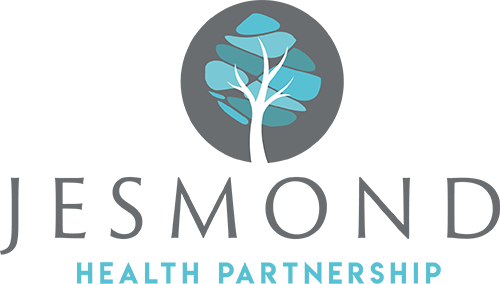World Autism Acceptance Week
This week is World Autism Acceptance Week.
The annual event has been running since 2007 when it was first launched as Autism Awareness Week.
The aim is to help more people understand autism and what living with the condition means for the 700,000 autistic adults and children in the UK.
We are supporting Autism Acceptance week by sharing information about the condition and how to get support, including asking for reasonable adjustments.
Read on or skip to sections using the buttons below.
What is Autism?
Autistic is a lifelong condition. It can affect how people communicate and interact with the rest of the world.
It is called a spectrum disorder. This means there are lots of different symptoms or traits that autistic people might have, but it is unique to each person.
A good example is how people deal with verbal and non-verbal language.
Some autistic people have minimal speech and struggle to communicate. Others have good language skills, but miss subtleties like tone of voice, or take things very literally.
Routine can be important to Autistic people. New situations can be confusing or distressing, especially if they are bright, noisy, or crowded.
This can be overwhelming and make people feel very anxious. Repetitive behaviours often associated with autism are people’s coping methods – a way to bring back some pattern and structure to their situation.
When this doesn’t work, and the situation is too overwhelming, people have meltdowns or shutdowns.
Meltdowns are when someone temporarily loses control of their behaviour and can lash out. This can be shouting, screaming, crying, or hitting or biting.
Shutdowns are when people stop communicating altogether.
Autism isn’t an illness with treatment or a cure. It just means your brain works differently to other people. With support and strategies, people with autism can lead a full life.
Autism is a learning difficulty rather than a learning disability. The difference is that autism doesn’t impact someone’s intellect, just how they learn.
You can learn more about the signs of autism and how to get diagnosed on the NHS website.
Aims of Autism Acceptance Week
A big part of this year’s Autism Acceptance Week is introducing the ‘Moonshot Vision’.
It’s a document created by the National Autistic Society, who asked autistic people and their families how to improve society and their lives.
They came up with five key things:
- Recognising what autism is and appreciating it is different for each person.
- Empowering people to make choices about their own life.
- Full support from diagnosis to care.
- Autism-friendly public spaces and services.
- Ending discrimination and the idea that autistic people must ‘fit in’.
You can read more about the Moonshot Vision on the National Autistic Society website.
Reasonable Adjustments
People with specific needs can ask GP practices to adjust parts of their services or policies to ensure they aren’t disadvantaged.
This is a legal right. Organisations must allow reasonable adjustments as a part of the Equality Act 2010.
What people need will be different, but some examples include longer appointment times, somewhere quiet to wait or easy-read information. This video explains more:
A ‘flag’ can be added to your medical record so anyone involved in your care knows what you need.
Please speak to a staff member to ensure your medical record has been flagged with your requirements.
Support and Further Information
There are plenty of resources and organisations out there to help autistic people and their families.
The National Autistic Society is a good starting point with advice and guidance on 24 different topics from diagnosis and behaviour through to benefits and education.
Support Organisations
The North East Autism Society has been empowering and supporting autistic children, young people, adults and their families for over 40 years.
They offer a range of services, from free resources and support for families to day care and residential care for adults and children, and training for professionals.
Every Wednesday, they run an Autism Hub at Fawdon Children’s Centre from 9 am to 3 pm. It. consisted of group workshops and one-to-one sessions. There is a small cost, and booking is essential. For more information, contact Kerrie Highcock by email or on 0191 410 9974.
Skills for People run regular groups and events for people with learning disabilities or autism. They provide advocacy services, family support and connect people with groups and activities.
Lifeways help people to lead more fulfilling, independent lives by providing extraordinary support for adults with learning disabilities, autism, physical disabilities, acquired brain injuries or mental health needs. One specialist service supports adults with autism.
Inspired Support use art, sports, music, and digital skills to support people aged 18 and older with an autism diagnosis. They have advice on their website about how to get funding for a place on one of their creative skill courses.
Diversity NE offers support and training around autism in the workplace. This includes advice and help for autistic people to get into and succeed at work, and to help employers understand the value of a diverse workforce.
Visit ne-as.org.uk/diversity/ne
Documentaries and Podcasts
Recently documentaries have brought some mainstream attention to autism. You can find links to two BBC programmes below, along with a podcast series about autism in the workplace.
Chris Packham helps autistic people illustrate how their minds work, helping them connect with their friends and family in a new, more authentic way.
Watch Inside our Autistic Mind
In this heartfelt journey of self-discovery, Christine McGuinness uncovers a hidden world of thousands of autistic women who, like her, have been ignored by science and society.
Autism – in conversation with auticon
The series is designed to drive awareness of the realities of autism in the workplace, from the merits of hiring neurodiverse talent, through to some of the more common challenges faced by autistic adults navigating the workplace.Listen to Autism – in conversation with auticon
